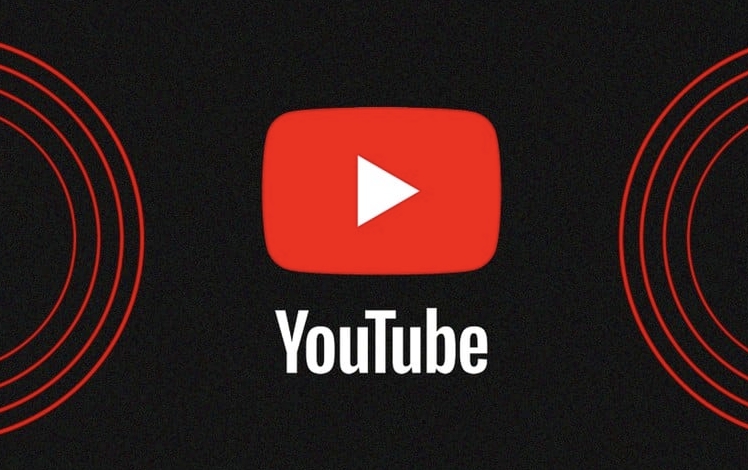Use trusted royalty-free music libraries like YouTube Audio Library, Free Music Archive, Incompetech, and Bensound, which offer safe, high-quality tracks cleared for monetized videos. 2. Understand licensing: CC0 means no attribution required, CC-BY requires crediting the artist, and public domain music is completely free to use, while “free to download” doesn’t always mean free for commercial use. 3. Explore premium options with free tiers such as Epidemic Sound’s 30-day trial, Artlist, Soundstripe, Pixabay Music, and Mixkit, all offering properly licensed music with minimal restrictions. 4. Search smartly on YouTube and Google using terms like “royalty free music no copyright” or “background music CC0,” filtering by Creative Commons and verifying licenses on original sources to avoid copyright claims. Always credit when required to ensure your content remains safe and demonetization-free.

Finding royalty-free music for YouTube videos doesn’t have to be complicated — as long as you know where to look and what to watch out for. The key is choosing music that’s truly free to use (even monetized videos) and properly licensed so your content won’t get flagged or demonetized.

Here are the best ways and sources to find safe, high-quality royalty-free music:
1. Use Trusted Royalty-Free Music Libraries
These platforms offer music that’s cleared for use on YouTube, often under Creative Commons licenses or their own royalty-free terms. Many are free for personal and commercial use, including monetized videos.

YouTube Audio Library
Built right into your YouTube Studio, this is one of the safest and easiest options. All tracks are pre-cleared for use in YouTube videos, even if you’re monetizing. You can filter by genre, mood, duration, and attribution requirements.-
Free Music Archive (FMA)
Offers a wide variety of tracks across genres. Be sure to check each track’s specific license (look for Creative Commons CC0 or CC-BY), as some may require credit.
Incompetech (by Kevin MacLeod)
A favorite among YouTubers. Over 2,000 tracks in many styles. Most are under Creative Commons (CC-BY), which means you must give credit in your video description.Bensound
Offers a solid collection of upbeat and cinematic tracks. Free to use with attribution. For no attribution, you’ll need to purchase a license.
2. Understand Licensing and Attribution
Not all “free” music is the same. Always double-check the license type:
- CC0 (Creative Commons Zero) = No attribution required, fully free to use
- CC-BY (Creative Commons Attribution) = You must credit the artist
- Royalty-free = Pay once or use free, but still may require credit
- Public domain = No copyright, completely free to use
? Avoid music labeled “free to download” but not “free to use commercially” — this can lead to copyright claims.
When in doubt, assume you need to credit the artist. A simple line in your video description like:
“Music: 'Happy Song' by John Doe — Licensed under CC-BY”
goes a long way.
3. Explore Premium (But Still Free) Options
Some high-quality sites offer free tiers with proper licensing:
Epidemic Sound (Free Trial)
Not entirely free, but offers a 30-day trial. Great for creators who want professional tracks with full rights and no attribution.Artlist and Soundstripe
Paid services, but worth considering if you make videos regularly. One subscription gives you unlimited access and full usage rights.Pixabay Music and Mixkit
100% free, no attribution required (though credited is appreciated). Good for background tracks and sound effects.
4. Search Smartly on YouTube and Google
You can find royalty-free music directly using search filters:
On YouTube, search:
“royalty free music no copyright” or “background music CC0”
Then filter results by “Creative Commons” under “Features” in search filters.
? CC-licensed videos mean the audio can be reused (as long as you credit).On Google, try:
“royalty free music site:incompetech.com”
to limit results to trusted sites.
Always verify the license on the original source — don’t trust random YouTube reuploads claiming “no copyright.”
Basically, stick to reputable sources, check the license type, and give credit when needed. That way, you can use great music without risking your channel.
The above is the detailed content of How to find royalty-free music for YouTube videos. For more information, please follow other related articles on the PHP Chinese website!

Hot AI Tools

Undress AI Tool
Undress images for free

Undresser.AI Undress
AI-powered app for creating realistic nude photos

AI Clothes Remover
Online AI tool for removing clothes from photos.

Clothoff.io
AI clothes remover

Video Face Swap
Swap faces in any video effortlessly with our completely free AI face swap tool!

Hot Article

Hot Tools

Notepad++7.3.1
Easy-to-use and free code editor

SublimeText3 Chinese version
Chinese version, very easy to use

Zend Studio 13.0.1
Powerful PHP integrated development environment

Dreamweaver CS6
Visual web development tools

SublimeText3 Mac version
God-level code editing software (SublimeText3)

Hot Topics
 How to enable the Adobe Acrobat extension in Chrome?
Jul 02, 2025 am 12:51 AM
How to enable the Adobe Acrobat extension in Chrome?
Jul 02, 2025 am 12:51 AM
To solve the problem that Chrome browser cannot preview PDFs online, 1. Install the official Adobe Acrobat extension; 2. Enter the extension page to make sure it is enabled and set to allow incognito mode to run; 3. Turn off the built-in PDF reader option in Chrome settings to set it to be opened by default with Acrobat; 4. If you encounter a prompt "Managed by Organization", you need to contact the administrator to handle it. After completing the above steps, you can directly view PDF files in your browser.
 How to send a document for signatures with Adobe Acrobat Sign?
Jul 02, 2025 am 12:44 AM
How to send a document for signatures with Adobe Acrobat Sign?
Jul 02, 2025 am 12:44 AM
The steps to send documents for others to sign with Adobe AcrobatSign are as follows: 1. Prepare the final version of the PDF file. If there is no PDF, you can upload it to other formats to automatically convert it, and ensure that the content is correct; 2. Create a new signing process after logging in, add recipient information and set the signature location, assign permissions to each signer, and adjust the signing order; 3. Optionally set email reminders, deadlines and signature methods to improve signing efficiency; 4. Send the document after confirming that it is correct, track the signing status through the system in real time, and download a copy or resend a reminder to complete the signing process.
 How to create a neon effect in Photoshop
Jul 02, 2025 am 12:16 AM
How to create a neon effect in Photoshop
Jul 02, 2025 am 12:16 AM
The key to making neon light effects in Photoshop lies in the matching of layer style and overlay method. The specific steps are as follows: 1. Use "Inner Glow" and "Gradial Overlay" to create basic luminescence, select neon tones and adjust parameters to simulate the brightness of the lamp; 2. Add "Outer Glow" and combine "Gaussian Blur" to enhance the three-dimensional sense of the halo; 3. Improve the texture by adding noise to make the effect closer to the real neon; 4. Use dark backgrounds, projections and atmosphere materials to enhance the overall visual impact.
 How to make an image look old in Photoshop
Jul 02, 2025 am 12:47 AM
How to make an image look old in Photoshop
Jul 02, 2025 am 12:47 AM
To make pictures look age-like in Photoshop, you need to imitate the characteristics of old photos and master the key steps. First, add warm tones to increase yellow and red to reduce blue by Color Balance, or use Gradient Map to select brown and yellow gradients and adjust blending mode and opacity. Secondly, adding texture and noise can be used to control the values ??using the Add Noise filter, or overlay old photo textures and set blending mode. Again, make scratches and edge wear to download scratch maps as layers and adjust positions and modes, or use built-in filters to simulate effects. Finally, pay attention to moderate processing, use adjustment layers and masks to facilitate modification, and appropriately reduce contrast to make the picture softer and more natural.
 How to change the default comment font in Adobe Acrobat?
Jul 03, 2025 am 12:30 AM
How to change the default comment font in Adobe Acrobat?
Jul 03, 2025 am 12:30 AM
In AdobeAcrobat, the default annotation font is usually Arial or similar sans serif fonts, but can be changed by setting. 1. Create a new text comment and right-click to select "Properties"; 2. Switch to the "Font" tab page and select font, font size and color; 3. Check "Set as Default" to make subsequent comments use the font. If you need global settings, you should go to Preferences > Comments > Multi-appearance > Edit Properties to adjust the font options. Notes include: Settings may only be valid for the current document, non-standard fonts, or protected PDFs may restrict changes, and it is recommended to test common fonts in advance to ensure compatibility.
 How to colorize a photo in Photoshop using neural filters
Jul 02, 2025 am 12:33 AM
How to colorize a photo in Photoshop using neural filters
Jul 02, 2025 am 12:33 AM
When using neural network filters to color photos in Photoshop, you need to pay attention to key steps and details. First, make sure that the software version supports this function, log in to the Adobe account and download and install the filter plug-in; then open the "Smart Coloring" option, and let the AI ??automatically finish the coloring after downloading the model; then check the results, use the brush tool, local application filters or combined with desaturation to manually color the error area; finally, after confirming that the effect is correct, export and save, it is recommended to keep the two versions of the AI ??layer and the final product. Although the entire process is simple, you need to pay attention to network connection, model loading and post-adjustment techniques.
 How to transfer an Adobe Acrobat license to a new computer?
Jul 04, 2025 am 12:01 AM
How to transfer an Adobe Acrobat license to a new computer?
Jul 04, 2025 am 12:01 AM
To transfer the Adobe Acrobat license to a new computer, you must first log out on the old device and release the activation permission, and then complete the activation with the new computer login account. The specific steps are: 1. Open Acrobat on the old computer and click on the avatar or "Help" > "Log out" to log out; 2. Download and install Acrobat for the new computer and log in with the original account to automatically identify the license; 3. If the activation fails, check the network, clear the cache, unbind the old device through the Adobe account page, or contact customer service to solve the problem. The key point is to ensure that the old device has been logged out, clear the local cache and update the online device list before the migration can be completed smoothly.
 How to create a custom brush in Photoshop
Jul 08, 2025 am 01:01 AM
How to create a custom brush in Photoshop
Jul 08, 2025 am 01:01 AM
The steps to create a custom brush in Photoshop are as follows: 1. Select a pattern with clear edges and suitable for brushes, such as hand-painted textures or photo parts, and adjust it to the appropriate size; 2. Use the "Magic Wand Tool" or "Quick Selection Tool" to remove the background to ensure that the pattern is in an independent selection; 3. Create a basic brush through "Edit > Define Brush Presets"; 4. Adjust the parameters such as "Shape Dynamic", "Scatter", "Text" and "Transfer" in the "Brush" panel to make the strokes more natural; 5. Finally, click "Save As Brush" to save as a .abr file for convenience of subsequent use and sharing.







